#w todd kaneko
Explore tagged Tumblr posts
Text




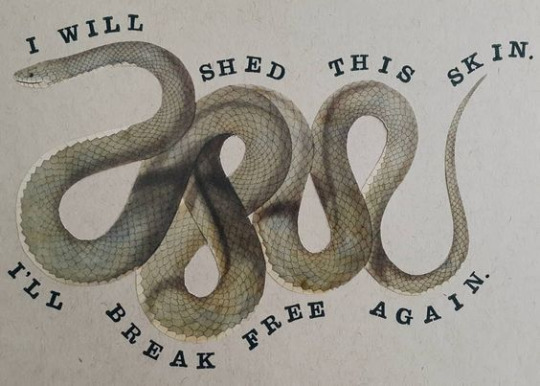

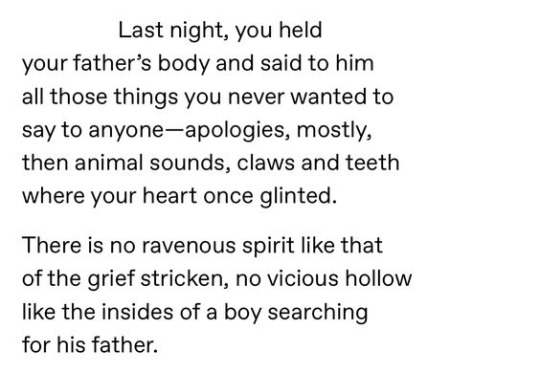
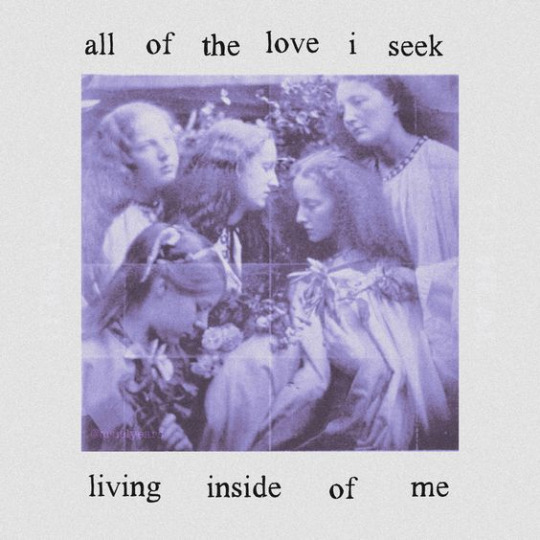
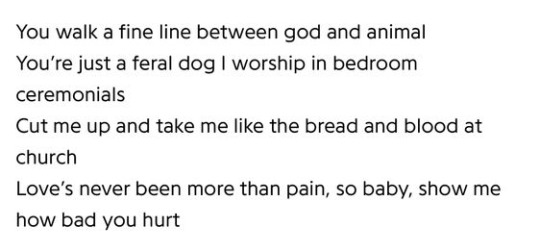
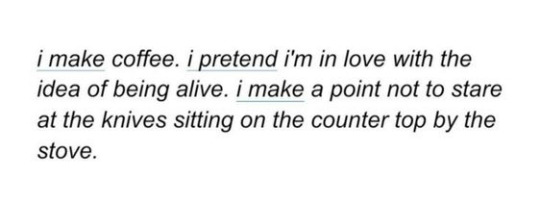
suddenly childhood ended and now i am supposed to know how to live
Franz Wright Entry In An Unknown Hand / Elena Ferrante (tr. Ann Goldstein) Those Who Leave and Those Who Stay (via @luthienne) / Jenny Zhang How It Feels / Anna Kamienska Astonishments / unknown / Gabrielle Bates & Jennifer S. Cheng So We Must Meet Apart / W. Todd Kaneko The Day After / image; SZA Blind / Ethel Cain Dog Days / @darkerthanerebus / pinterest
#vent lol#on sadness#on loneliness#on growing up#on letting go#on being abandoned#tw sh#tw self harm#tw suicide#franz wright#entry in an unknown hand#elena ferrante#those who leave and those who stay#jenny zhang#how it feels#anna kamienska#ashtionishments#gabrielle bates#jennifer s cheng#so we must meet apart#w todd kaneko#the day after#sza#blind#ethel cain#dog days
219 notes
·
View notes
Text
Michael Afton Web Weave










Jukebox the Ghost, "Under My Skin" // Taylor Swift, "seven" // Elizabeth Jennings, "Song for a Birth or a Death" // the unsent project, to mom // Rick Riordan, Demigods and Magicians // Grail Quest #3: The Gateway of Doom // whispertothem00n, "The chain bound" // Anne Carson, "Grief Lessons: Four Plays by Euripides" // W. Todd Kaneko, "THE DAY AFTER" // Audre Lorde, "Sister Love: The Letters of Audre Lorde & Pat Parker" //
Third Michael Afton Web Weave ( 1 - 2 - 3)
33 notes
·
View notes
Text
Post 2: An Introduction to Poetry
Reading this section of Amorak Huey's and W. Todd Kaneko's Poetry: A Writer's Guide certainly challenged my notions of talent, meaning in poetry, and what it means to be a poet.
It's easy to romanticize talent. I think if we're honest with ourselves, we've all been guilty of romanticizing the image of the genius, loner poet who lives a gritty or dramatic life. Everything may be falling apart around them (and it's often their fault because they have a disagreeable personality or substance abuse), but when they put their pen to the page--and they rarely do--they can somehow spin gold, every time.
This romantic ideal of a poet is common enough, and one that envisions talent--an innate ability--as the most important factor in determining who does and who does not get to be a poet.
Now, I do believe that we all do possess our own talents, but to think that someone is successful in any endeavor only because they are more talented than you are is both a cynical and unnecessarily discouraging outlook. As Huey and Kaneko rightfully point out, it is not talent that makes the poet but discipline, courage, and willing to be part of a community.
It takes hard work to sit down a write, but that's just what a poet must do. Just like a carpenter spends long hours hammering and sawing to build a house, or a mechanic works several days pulling apart an engine into its smallest components to rebuild it, the poet must sit down and peck away on the keyboard or scratch at the paper, a little at time, every day. It is hard work; it is work that requires discipline, and anyone with discipline will outperform someone who is talented if the latter lacks discipline.
It takes courage to put your ideas in writing and to put them out there for audience. Having courage, again, trumps having talent because without the courage to share your work with others, how can you even be a poet?
The courage to share one's poetry is vital to the final point I want to make about what being a poet actually entails. It is what Huey an Kaneko call "community." One cannot be a poet in a vacuum (even Emily Dickinson, who, famously, never published her poetry, shared her poems with other writers and often corresponded in letters). The poet must share their work with other writers and readers. Writing poetry is only half the work; the other half is letting someone read it because the reading is where the magic of interpretation happens.
Interpreting poetry, as Huey and Kaneko observe, can be tough work. I think Huey and Kaneko are also right when they, following in the tradition of Roland Barthes' famous pronouncement that the author is "dead," that once the poet puts a work out there, it no longer belongs to them, but to the community of readers. Again, this is because interpretation is vital for a poem to function a poem. Without a reader, there is no poet or poetry.
So, it's not just talent that makes someone a poet. Sure, talent gives one an advantage, but it is the discipline to commit to writing, the courage to share one's writing despite having doubts, and engaging in a community of writers and readers that makes one a poet. We can all be poets.
A final aside: I did like that Huey and Kaneko pointed out that the poet should strive to create a cohesive sense of meaning--regardless of how a reader might interpret their poem. However, finding meaning in the poem or creating meaning through "symbols" is not the best way to read or write poetry. There is so much more to poetry--rhythm, sound, form, meter (or lack thereof), images, figurative language, syntax, grammar, wordplay, etc.--that one can enjoy in the moment, and trying to hard to unlock any one "meaning" of a poem can get in the way of just experiencing the poem for what it is.
7 notes
·
View notes
Text

Blog Post 2: An Introduction to Poetry
Reflections on Meaning, Talent, and What It Means to Be a Poet
I took this photo in Florence during the climb to the top of the Duomo in June. To me, it tells three stories from three perspectives: the constrained view from inside the staircase, the midway image of the ionic column's rigidity, and the far-off vista of the city meeting the vast sky. Maybe a poem can be something like this picture, offering a glimpse of more than one viewpoint.
When I read a poem, I often look for meaning. When I write a poem, I always start with meaning. Reading Huey and Kaneko has given me a more nuanced understanding of meaning in poetry. First of all, poems can have many meanings which might even contradict one another. And while poems are open to many interpretations, they should always pursue bringing the poet’s concepts to the reader. To Huey and Kaneko, “A poem that can mean anything is a poem that says nothing” (Huey 9). Secondly, while meaning is central to writing poetry, it may not be the most important thing that a poem delivers. Instead of its meanings, it may be the experience of reading a poem, surfacing multiple thoughts and emotions, that resonates with readers. I’ll try to keep this in mind as I work this semester.
Another idea I’ll need to keep centered is that all good poets have demonstrated courage. They have developed their talent with words. And to develop talent, bravery is required. A new poet has to be willing to write and put their babies out into the world. This is something I struggle to do. It’s hard to be that vulnerable. However, without subjecting poems to daylight, without allowing them to be poked and prodded in uncomfortable ways, poetic growth is impossible.
Poets live in a world of contradictions. Huey and Kaneko point out that poets are loners who should seek out community, that their work means everything and nothing, they they can be themselves and also other people, and that they should be both citizens and activists. I feel the truth in their statement, “Civilians don’t think like writers, so they don’t always understand how the world is always offering up poems to be written. But you do” (23). I think most don’t people understand the gift and the burden of needing to write a poem. Some writers are uncomfortable with poetry. One published fiction writer told me, “poets are weird.” Maybe so, but more so than other writers, they are adept at finding and using the beautiful music of words to create worlds that hit us in the solar plexus, grab our imaginations, rip us from complacency, inspire us, and change us. Usually with a much lower word count.
Huey, Amorak, and W. Todd Kaneko. Poetry: A Writers’ Guide and Anthology. Bloomsbury Academic, an Imprint of Bloomsbury Publishing Plc, 2018.
10 notes
·
View notes
Text

Obyerodhyambo, Oby . “Poetry Is Dying and Poets Are an Endangered Species - the Elephant.” The Elephant, 4 July 2019, www.theelephant.info/analysis/2019/07/04/poetry-is-dying-and-poets-are-an-endangered-species/.
Blog Post 2: "An Introduction to Poetry"
Reflecting on meaning described in the book Poetry: A Writers' Guide and Anthology by Amorak Huey and W. Todd Kaneko, I found it interesting that the suggestion of readers interpreting a poem however they please is a mistake. There is a stark difference between a poem being open for interpretation and a poem having “specific experiences and understandings” (Huey and Todd 9). Being open to interpretation usually leads to how the reader relates to the poem but understanding the poem allows the reader to clearly grasp the ideas and experiences being told. This chapter also states, “A poem that can mean anything is a poem that says nothing” (Huey and Todd 9). This statement is powerful, and I agree 100%. I often feel whether I am reading a novel, a poem, listening to music or looking at art, if the meaning is lost to me, I immediately lose interest and disengage. The purpose of the art, no matter the form, should always be comprehensible.
Reflecting on the chapter discussing talent, although I understand how the word talent could affect writers, I do not agree with “recasting” the word. I say this because I do not feel there is anything wrong with someone having a natural ability to do something. I believe in the difference between talent and skill. I agree with what the adjective of talent could imply but it also holds some truth. For example, a person who is naturally good at baseball may not have to work as hard to play but that does not mean they do not practice or work hard or are automatically better than others. They just simply have a natural gift, meaning they may not have to go through the same adjustments or learning practices as someone who does not have the natural ability. “The message of everyone else being “clowns” or “not measuring up” to the talented player, I would argue, is a subjective feeling. So instead of changing the description of the word or as stated in the section, “let’s not abandon the word talent” (Huey and Todd 17), I suggest using another word to positively and if needed, to distinctively describe a writer such as skillful with the understanding that talent refers to having a natural ability and skill refers to development and practice to acquire such ability.
In reference to what it means to be a poet, overall, a poet is a person who writes, performs and or studies poetry. I enjoyed reading the many different layers of descriptions of what it means to be a poet in this section. The explanations I resonated with the most were thinking like a writer, the solitude of writing, being a part of a community and tradition, and being free to express and show empathy. These explanations also provoked my thoughts about the true difference and definition of a poet and a writer. Personally, I do not consider myself a poet but a writer simply because of the differences in the formality I convey my thoughts, ideas, and experiences. Both writers and poets share the same abilities to creatively express and describe stories, emotions and concepts that will connect with readers attractively.
Thanks for reading, until next time!
Huey, Amorak, and W. Todd Kaneko. Poetry. Bloomsbury Publishing, 11 Jan. 2018.
8 notes
·
View notes
Text
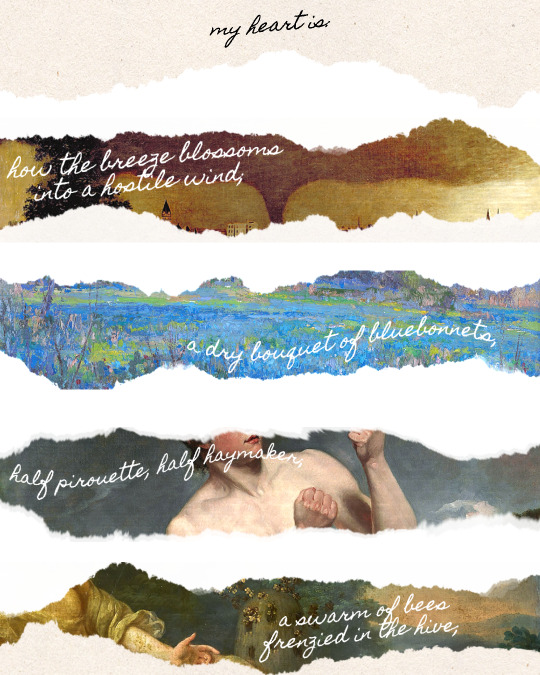
HAPPY BIRTHDAY MY POETRY PARTNER-IN-CRIME, @powderflower! I hope you enjoy your day, have this edit :) Thank you for the opportunity to learn a lot making this, and also for the privilege of being your friend! Let's talk more ;)
[text from the poem Heart of the Texas Tornado by W. Todd Kaneko. Images, from top to bottom: Tornado Over St. Paul by Julius Holm; A field of Blue Bonnets, late afternoon sunlight by Julian Onderdonk; Richard Humphreys - The Boxer by John Hoppner; The Goddess Melissa Reclining By A Beehive In A Landscape by the French School]
8 notes
·
View notes
Text
Thank you Ilanot Review...
And many thanks to Marcela Sulak, Jane Medved, Alison Powell, and W. Todd Kaneko for nominating my poem for Best of the Net!, “I Made a Roof out of the Wolf” in the Want Issue http://www.ilanotreview.com/want/poems-cassandra-whitaker/
View On WordPress
1 note
·
View note
Text
Where the Sky Meets the Earth
by W Todd Kaneko
A man can’t die where there is no earth because there will be no place to bury him. His body is the sky and understands the language of birds. His body says the earth is made of everything that has fallen from Heaven while no one was looking. He promises to defy gravity and then return home. A man can’t reach for the sky and not feel he is falling. It goes on forever and the birds talk about the awesomeness of flight while the oxen labor in the fields, while the cows eat grass and dream of slaughter. A man can’t talk about flight because one day, there will be no sky, just the body covered in earth. And now the sky is empty of birds. And now the earth is covered in flowers.
[via poets.org]
5 notes
·
View notes
Quote
A man can’t die where there is no earth because there will be no place to bury him. His body is the sky and understands the language of birds. His body says the earth is made of everything that has fallen from Heaven while no one was looking. He promises to defy gravity and then return home. A man can’t reach for the sky and not feel he is falling. It goes on forever and the birds talk about the awesomeness of flight while the oxen labor in the fields, while the cows eat grass and dream of slaughter. A man can’t talk about flight because one day, there will be no sky, just the body covered in earth. And now the sky is empty of birds. And now the earth is covered in flowers.
“Where the Sky Meets the Earth” by W. Todd Kaneko
1 note
·
View note
Text
“All the Things That Make Heaven and Earth” - W. Todd Kaneko
The soil, the livestock, our memories of the war, everything flourishing before it vanishes—breath severed clean from our bodies, our shadows sunset-deepened and woven with dirt, whole family trees succumbing to the blight. My grandfather returns to life, back still bent by history’s quiet yoke, his memories of camp forever decaying into the tiny garden behind my house where my father’s death is the soil, where silence blossoms now all year round. Or the soil is my grandfather eating darkness, the spectral memory of camp that feasts upon my father and his father, me and my son. There are no such things as ghosts—I tell my son this every evening as he gazes up the dark stairwell towards his room. What will be waiting for us when my boy is old enough to ask where he comes from? What will we find when our memories of camp finally molder back into the ground?
2 notes
·
View notes
Text
My father died a year ago and I’m still writing poems to bring him back
to me—
— W. Todd Kaneko, from “Elegy for Mr. Spock," published in Split Lip
590 notes
·
View notes
Text
Culture Consumption: March & April 2022
Culture Consumption: March & April 2022
Hoo, boy. Time slipped right by me. I was planning to do my Culture Consumption for March on time, but then the next thing I knew it was April. In addition to putting two months together, I’ve done a lot media consumption over the past two months — which means I’ve got a huge stack of things to talk about. I’ll try to move through it all as quickly as I can. If I have the wherewithal, I’ll try to…

View On WordPress
#book love#book reviews#games#Geraldine Brooks#Holly Lyn Walrath#Jilly Dreadful#movies#Nnedi Okorafor#podcasts#reviews#television#W. Todd Kaneko
0 notes
Text
2022 reads!
since everyone is doing this, i figured i might as well join in! i track my reading through thestorygraph and aim for 30 books in a year, though i don't usually count shorter texts read for class or the plays i skim when looking for material in my acting classes. favorites in each category are bolded. feel free to ask questions on any of these!
FICTION:
House of Leaves – Mark Z. Danielewski
Detransition, Baby – Torrey Peters
Sula – Toni Morrison
The Infinite Noise – Lauren Shippen
A Neon Darkness – Lauren Shippen
Some Faraway Place – Lauren Shippen
Gone Girl – Gillian Flynn
Paradise – Toni Morrison
Gideon the Ninth (Reread) – Tamsyn Muir
Harrow the Ninth (Reread) – Tamsyn Muir
Sharp Objects – Gillian Flynn
A Psalm for the Wild-Built – Becky Chambers
This is How You Lose the Time War – Max Gladstone & Amal El-Mohtar
The Seven Husbands of Evelyn Hugo – Taylor Jenkins Reid
A Room Called Earth – Madeleine Ryan
Nona the Ninth – Tamsyn Muir
Frankenstein (Reread) – Mary Shelley
Hell Followed with Us – Andrew Joseph White
Dracula (through Dracula Daily) – Bram Stoker
Eartheater – Dolores Reyes (trans. Julia Sanches)
My Heart is a Chainsaw – Stephen Graham Jones
Lolita – Vladimir Nabokov
NON-FICTION:
Kill All Normies: Online Culture Wars from 4chan and Tumblr to Trump and the Alt-Right – Angela Nagle
Fun Home: A Family Tragicomic (Reread) – Alison Bechdel
POETRY:
War of the Foxes – Richard Siken
Poetry: A Writer’s Guide and Anthology – W. Todd Kaneko & Amorak Huey
Life on Mars – Tracy K. Smith
Anglo-Saxon Judith – Unknown
Beowulf – Unknown
Sir Gawain and the Green Knight – The Pearl Poet
PLAYS:
Cloud 9 – Caryl Churchill
How I Learned to Drive – Paula Vogel
Mr. Burns and Other Plays – Anne Washburn
In the Other Room (The Vibrator Play) – Paula Vogel
Becky Shaw – Gina Gionfriddo
The Skriker – Caryl Churchill
The Tempest – William Shakespeare
This is Our Youth – Kenneth Lonergan
Bully – Amina Henry
The Merchant of Venice (Reread) – William Shakespeare
The Marriage of Bette and Boo – Christopher Durang
Measure for Measure (Reread) – William Shakespeare
10 notes
·
View notes
Text
A man can’t die where there is no earth because there will be no place to bury him. His body is the sky and understands the language of birds. His body says the earth is made of everything that has fallen from Heaven while no one was looking. He promises to defy gravity and then return home. A man can’t reach for the sky and not feel he is falling. It goes on forever and the birds talk about the awesomeness of flight while the oxen labor in the fields, while the cows eat grass and dream of slaughter. A man can’t talk about flight because one day, there will be no sky, just the body covered in earth. And now the sky is empty of birds. And now the earth is covered in flowers.
Where the Sky Meets the Earth | W. Todd Kaneko
1 note
·
View note
Text
Blog Post 4: Image and Metaphor
If there is one thing to take away from the imagery section of Amorak Huey’s and W. Todd Kaneko’s book Poetry, it’s this: “What the poet thinks of as a ‘modest house might be one reader’s mansion and another reader’s hovel…You should never assume that your judgement is ‘normal’ or somehow universal” (70). This idea, coupled with the authors’ distinction between concrete and abstract imagery, is great advice to consider when creating imagery. It’s something I’ll have to consistently remind myself while writing, to make sure I’m clearly conveying to my audience what I am envisioning in my head. When I think of imagery in lyrics, Nas’s Illmatic album stands out as one of the best to do it. The entire album does a fantastic job at incapsulating a 90’s crime-fueled New York City and helps the reader envision the struggles that native new Yorkers like Nas go through. The whole album feels as though it was made to be used as the city’s own personal soundtrack.
On the topic of metaphors, one of my biggest concerns when writing is coming across as cheesy, cliched, or shallow. Metaphors can greatly heighten or lessen one’s poem depending on how well or how poorly they are executed. Huey and Kaneko point this out when discussing extended metaphors and how poorly executed metaphors obscure the poem’s subject matter when they should instead be expanding on it. Extended metaphors in poetry are certainly something I would like to experiment with down the road once I feel more confident in my ability to incorporate metaphors in my writing.
3 notes
·
View notes
Photo
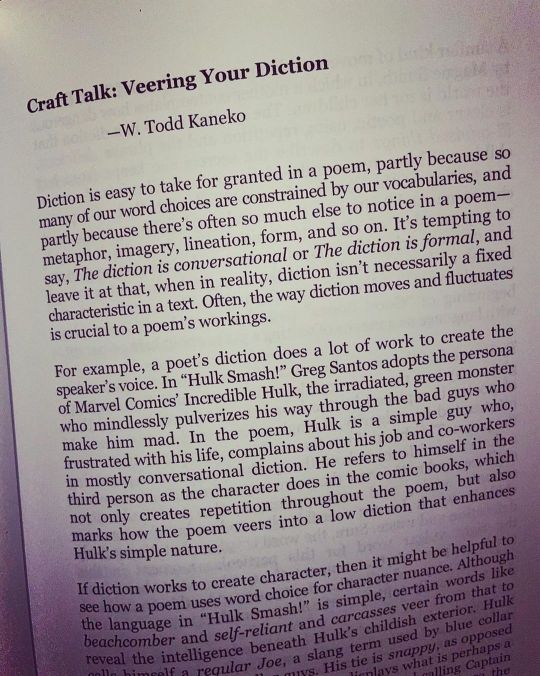
Thank you to @toddkaneko for referencing “Hulk Smash!” in this essay about diction in poetry alongside @maggiesmithpoet’s outstanding and viral poem “Good Bones” in the new book The Strategic Poet: Honing the Craft (Terrapin Books, 2021) edited by Diane Lockward. Hulk is humbled, honoured, and grateful. 💚 Photo credit: W. Todd Kaneko. . . . #gregsantos #hulksmash #toddkaneko #maggiesmithpoet #dianelockward #poetry #poetrycraft #poetrycommunity #writingcommunity https://www.instagram.com/p/CVB2TicN1WG_ljLfWHTDA0VR1u5TW4vEm8XJFY0/?utm_medium=tumblr
#gregsantos#hulksmash#toddkaneko#maggiesmithpoet#dianelockward#poetry#poetrycraft#poetrycommunity#writingcommunity
8 notes
·
View notes